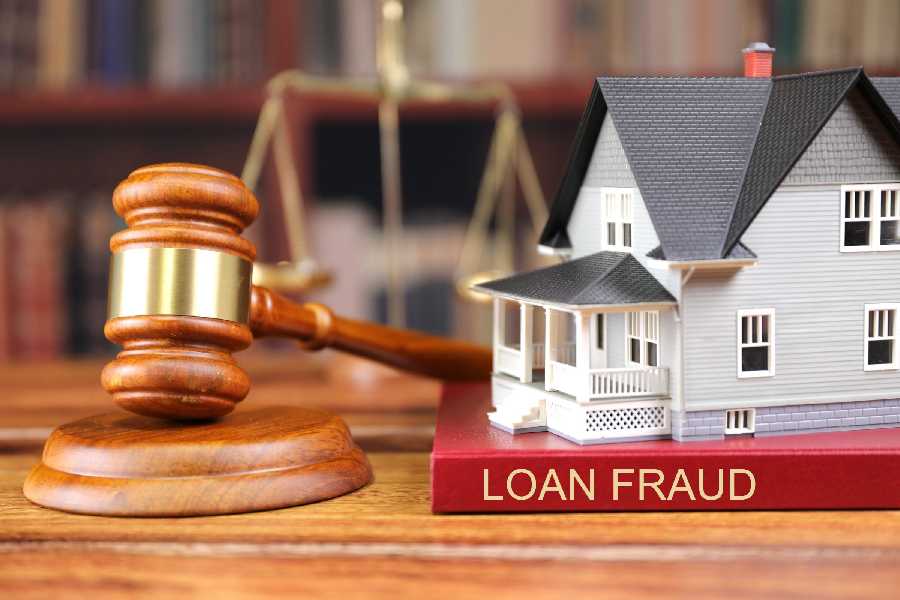This article will explain what mortgage fraud is, the different types of mortgage fraud and what consequences can result if a person is caught. We will also talk about what can be done to significantly reduce mortgage fraud.
What is Mortgage Fraud?
Mortgage fraud is a crime that entails lying on your mortgage application to receive financing. Mortgage fraud is still being committed if you even slightly misrepresent when applying for a mortgage. Mortgage fraud is a serious offence that can result in legal action and jail time for anyone found guilty.
What are the different types of mortgage fraud?
Income Fraud
The most typical kind of mortgage fraud is income fraud. It entails the borrower-to-be declaring an income level that is higher than what they earn. Income fraud has become more frequent due to the growth of online crime, as there are now websites that sell services like counterfeit W-2 forms, falsified tax returns, and fake income or employment verification for a price. Other dishonest practises used by borrowers include listing a fake job title or claiming self-employment income that does not exist. For instance, a borrower might represent themselves as a high-level CEO at the business they work for when they are a lower-level worker. The increasingly prevalent crime of identity theft is a form of income fraud. In these situations, a borrower gets hold of another person’s financial information and utilises it to get a mortgage loan and buy a house.
Appraisal Fraud
Appraisal fraud is the deliberate overvaluation or undervaluation of a property for which a borrower is applying for a mortgage loan. Typically, appraisal fraud requires cooperation from a potential borrower and an unreliable appraiser. Appraisal fraud frequently involves a “for-profit” scam, in contrast to income fraud, which is sometimes conducted solely to get a home loan. The following describes a typical instance of appraisal fraud:
- A property is appraised for a higher amount than its real value or recent sale price by the potential borrower.
- The borrower can then get a mortgage loan for a sum greater than what is required to buy the property.
- After receiving the loan, the borrower divides the extra funds acquired that are not needed for the purchase of the property with the appraiser, and potentially even the property seller.
Occupancy Fraud
There are several ways occupancy fraud can happen. To get the best loan conditions, a potential borrower could lie and say they plan to live in a home as their primary residence even though they don’t. Usually, loans for main residences come with lower interest rates. Another instance of occupancy fraud is when a borrower makes up their intention to buy an investment property that they plan to rent out to qualify for a mortgage loan.
Other mortgage fraud profit schemes
The victims of mortgage fraud schemes might occasionally be mortgage loan borrowers rather than the fraudsters themselves. To trick homeowners who are having financial difficulties, mortgage brokers, lenders, or other businesses or people may approach them. They persuade the owner to “temporarily” transfer the property to them by offering to pay the mortgage until the owner can start paying it themselves again. The brokers might then sell the house without consulting the real owner and walk away with the proceeds rather than performing as promised. They could have also sought payment from the homeowner for their assistance. They keep the charge but fail to make the agreed-upon mortgage payments, which leads to the final foreclosure of the house. At a foreclosure auction, some of the most blatant con artists may go on to buy the house for a significant discount.
Important things to be aware of
Many times, mortgage lenders rely on other experts, such as solicitors, to do the necessary inspections on their behalf. To defraud lenders and other professionals engaged in a real estate transaction, criminals might try to utilise you.
You may be implicated by criminals at the last minute, making it difficult for you to do thorough research. They might attempt to include you in a transaction at an advanced stage, for instance:
- Encouraging you to conclude a transaction by transferring the title when contracts have already been exchanged
- Obtaining finalised paperwork from a lender who has already approved a loan
Other things criminals may try are:
- Encourage you to change the property’s value or submit other false information
- Advise you to disregard the UK Finance Handbook or the mortgage guidance from the Building Societies Association
- To entice you away from performing thorough inspections on a given transaction, they may attempt to offer you more or more profitable business.
- Attempt to enlist you in the scam
Warning signs to look out for the property value include:
- The property value has rapidly soared, outpacing the local market, in a short period of time.
- You are instructed to deposit the balance of the mortgage into an unidentified account after the purchase price has been paid.
- The land was recently transferred, but no money was exchanged, or the purchase price was significantly less than the current market value or declared value.
- The price or amount paid for the goods with the sale appears to be high.
There are times when the lender won’t have been informed of information that could influence their choice. Watch out for warning indicators that the lender is unaware of:
- Discounts, bonuses, or perks offered by the seller or developer
- Payment of the deposit by a party other than the buyer
- The buyer giving the seller or developer the deposit immediately
Conclusion
As you can see from above, there are many mortgages fraud scams out there and it’s increasing due to a lot of online growth. To reduce mortgage fraud, people need to have reasonable expectations for their borrowing and homeownership experiences, investors should establish sensible profit objectives and industry professionals must uphold higher standards of conduct and accept organisational accountability from their peers. The Government needs to be more consistent and must harmonise the laws and reconcile law enforcement with ongoing investigations.
You might also like to read: Should I fix my Mortgage?



3 thoughts on “What is Mortgage Fraud?”